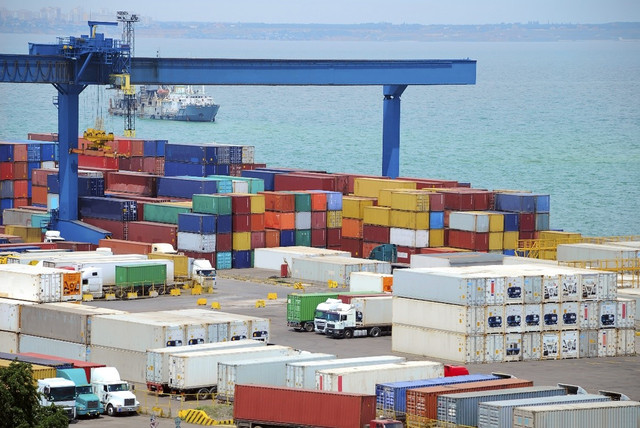Not every shipping container needs ventilation, but depending on your intentions for the product, it could be very important for the safety of your stored goods and the surrounding area. In this blog, we’ll tell you all the reasons why you should be concerned about the ventilation in your container and how you might go about installing some.

The Importance of Ventilating Your Steel Container
A shipping container should be well ventilated in at least two cases; if you are planning to use the container as a home, extension or temporary building, or in the case that you are storing any combustible gases.
In a shipping container that has been renovated for a communal space, whether that’s a home extension or a break room on a construction site, failure to include adequate ventilation and insulation will accelerate rust and create issues with damp and mold. Poor ventilation can also lead to stale air, which is a breeding ground for disease and encourages unpleasant smells to hang around.
The first example might simply create a problem of no-one wanting to use your shipping container space because it is functionally unattractive, but in the second example where dangerous combustibles are stored in a shipping container, the failure to ventilate could be causing risk to life. In the next section, we talk about where the risk of container explosion comes from and how to avoid it.
Circumventing Explosions
When storing gas anywhere, it is important to provide adequate ventilation. This is so that if there is a fault in the gas container that results in a leak, the gas will be able to dissipate into the surrounding atmosphere safely. Therefore, most gas bottles recommend that they are stored outdoors and to avoid storing them in basements where possible. Storing gas below surface level in poor ventilation can lead to the gas pooling in your basement, creating a toxic atmosphere which is hard – or even impossible – to breathe in; the same can happen in a poorly ventilated shipping container.
You don’t need to be storing bottles of gas in your airtight shipping container to be creating a safety risk; storing tools which use highly flammable fuels can also present issues that may need to be considered by construction companies and workers.
When the fuel stored in your tools heats up, or if there is an underlying fault in the equipment, there is a possibility that the fuel could leak out into your storage container. Once in your container, if it doesn’t find a way out, then any rogue spark could set that gas alight and explode.
An explosion in an airtight container can be very dangerous. The strength of a container is in the reinforced corners, which means that the force of an explosion is likely to buckle the sides of the container and could even blow the doors off the hinges. This presents a threat to anyone standing in line with the doors of a poorly ventilated container when it houses combustible gases. This can be circumvented simply by installing some ventilation.
Construction equipment and tools aren’t the only items which use gas as a fuel; think carefully about what you put in your container and whether it needs ventilation.
In the video below, you can learn more about shipping container hazards and the reality of an explosion:
How to Install Ventilation
There are a few different ways to properly ventilate your shipping container so you should learn about their differences so that you can make an educated decision. Passive ventilation will improve the airflow without adding to your energy bills. It makes use of natural forces like wind and thermal buoyancy to move air of different temperatures around and through your space, which is effective for replacing stale air.
If passive ventilation is not going to be enough for your purposes, you may want to consider mechanical ventilation solutions, such as extractor fans and supply ventilation fans. An extractor fan will push stale air out of the room, while supply ventilation will bring fresh air inside. Alternatively, you could consider a balanced ventilation solution to provide both features in one product, although this is typically a more expensive solution.
Do Flintham Cabins Provide Ventilated Containers?
Not only do we provide high-quality steel storage containers in London but we also provide bespoke containers, so we are fully equipped to deal with your requests, whether that be about installing some ventilation or styling your container as a pop-up business. We’re experts in shipping containers so trust us to handle your queries.

